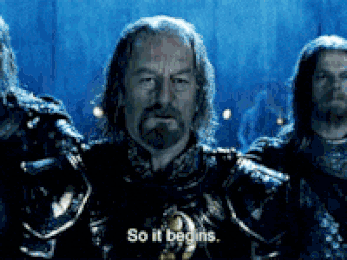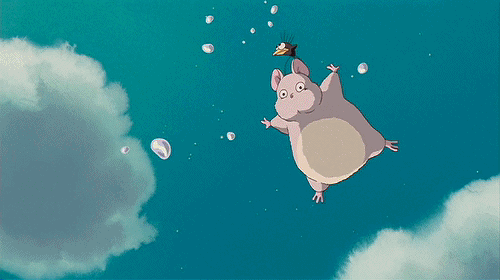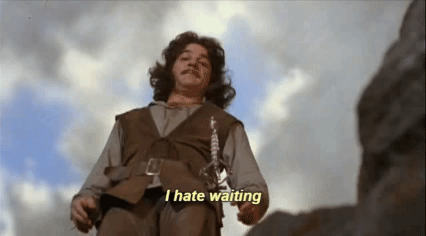|
Today, as the country looks up to the sky to witness one of nature's wonders, I wanted to take a moment to reflect on the very human issues of the past week. A number of people I know on social media have taken to posting things about Charlottesville and elsewhere with the message of "it's time to move on" or "just let it go."
No. I know this is a conversation that's difficult. I know many people like to pretend it's not about them, or it doesn't affect them. As I see it, there are two types of racism in this world. One is the active racism of people who honestly believe what they say. They think they're better than others because of the color of their skin, forgetting that the color of their blood- of all human blood- is the same red. This type of racism is not new and is not in the hearts of the majority of people, but it is suddenly louder in the US. It's been given a new voice, and a new sense of acceptance by the current Administration. The second type of racism, however, is far more insidious. This is the racism found when people see or hear things and ignore it. It is a racism of complicity. Seeing statues erected to honor white superiority and asking to preserve them. Seeing voter laws changed to disenfranchise minorities and saying nothing to your leaders. Or seeing Nazi rallies and not condemning hate for what it is. Boston was a powerful example of what happens when people come out in support of tolerance and love. Hate is a powerful emotion, but so is love. There are no easy solutions. I don't think showing up to shout down racists will work in the long run. I don't think protests and counter protests are the only answer, because it does continue the "us vs them" mentality adopted by the racist communities. I think back to my years teaching theatre. One of the things I love, especially about the arts, is the environment we fostered. Kids come to theatre often feeling outcast already. People of every race, socioeconomic background, and sexual preference. These kids worked together on shows, on plays, on building things together. They saw themselves as teammates, as friends. This is one possible long-term solution to combating racism. I wish we could go into communities where people are isolated and encourage them to work together with people of color. Send the racists into service through groups like the Peace Corps or USAID and have them help people in Africa, Asia, and other countries where perhaps these people start to realize they can fit in with others in a positive way. After all, racism is built on fear and ignorance, and both are combated through education and experience. Every year, arts in education are being cut. When I left teaching, I'd already been asked to continue an afterschool theatre program with no pay for any of my extra time, despite it being more time and harder than my regular teaching job. The department was also told to go without funding entirely. Community service, while encouraged in some schools, is often a lip service term given to kids who'll find time to help a teacher decorate their classroom, instead of going somewhere and doing something that engages with a broader community. These are issues you can talk with your elected school board officials about. These are issues that have long-term consequences. In the meantime, no, do not "let it go" and just try to forget what's going on around you. Speak up for what you believe in. Call out your leaders if they're not representing your values. And take the time to look at the world. This is a problem that's not going away anytime soon, and that needs to be talked about and addressed every day. Give our children a better world than the one we live in.
2 Comments
I have been writing for a long time. Heck, I've wanted to be a writer since middle school. I've been writing ever since. The very first book I wrote took ten years. It's a mess. You've never heard of it. It's shelved on a floppy disk (remember those?) among other places, but was never revisited. Then, during my time in Oxford, I was inspired to write School of Deaths. It took me a year to write, and then I began trying for agents. In publishing, if you want your book published with the big publishers, distributed widely, and making money, you need an agent. The "Big Five" publishers (all subdivisions of just five companies) only take manuscripts from agents, and even then it's not always a guarantee of publication, much less success. Yet agents are the first gatekeepers in the business. Getting an agent involves writing a query letter. This is a single page long- a blurb about your book, a paragraph about similar books in the marketplace, and a paragraph about you. It's an email you send out and know you'll probably never hear back from. Some agents ask for just this, some for your first five pages. Most agents receive hundreds of email queries a DAY. Of those they receive, they might request pages from 5%, and of those pages, maybe request a full manuscript from an even smaller number. And it's not just based on the quality of your writing. It's based on a lot of subjective factors, like the agent's preferences, if they think they can sell it, does it conflict with other clients they have, and so on. In short, getting an agent is very, very difficult. It feels a bit like falling through mid-air, and trying to catch (and hold onto) a single raindrop. After a year of querying, and 130 rejections, I gave up trying to find an agent for School of Deaths. Instead I began querying small presses. 30 queries of publishers later, MuseItUp said yes. Small press is a form of traditional publishing in between the big guys and self publishing. In a way, it's sort of like the minor league baseball league. Minor leaguers are pros, and paid to play ball, and some are amazing, but you've never heard of them. They're all hoping to make it into the majors, but to do so they need that scout. With writing, you need an agent. After Scythe Wielder's Secret I wrote a sci fi thriller and re-entered the querying phase. Months passed. Nada. I've since decided to rework the project. Then, I had an idea for a book. A series. The ideas kept coming and coming. It was without a doubt the best thing I'd written. I decided, yet again, to plunge back into querying. Querying is a SLOW process, I'll add. Some agents have an AVERAGE response time of 115 days. That's just to hear back, even if it's a no. And if they request pages or your full manuscript, you have to wait months upon months. I began querying in January. I queried and queried. I became active in the Manuscript Academy, which gave me a lot of opportunities to work with pros. I had skype sessions with agents and not only pitched my book, but got help rewriting my query. I was in a workshop to help revamp my first page, and ended up a part of a writing community that's still wonderfully supportive today. And I worked with editors from St Martins and Tor (two imprints of the "Big 5" publishers) to rewrite the beginning completely. On the advice of an agent, I began "requerying" - contacting agents who said no months ago or who never responded. I was hopeful, but still not sure. I was ready to enter PitchWars when everything took off. First I got an offer from an agent. I then had to let my outstanding (hadn't heard from them yet) requeries know. Within hours, I had six more full requests. I eventually got a second offer and it came down to an insane day of phone conversations, nerves, and difficult decisions. After talking to the two agents, however, I knew the original offer was the agent I wanted to stick with.
This is only one stage in a longer journey. However, this is a huge step for me and my career as an author. |
Archives
April 2024
Older postsCategories
All
|





 RSS Feed
RSS Feed